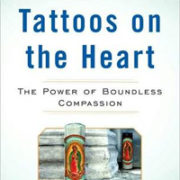The Book of Form and Emptiness by Ruth Ozeki
This book spoke to me. Like, I’m not kidding, it legit spoke to me. I know, I know, this type of statement typically implies the use of overtly figurative language. Not this time, however. Well, maybe a little. Since this book doesn’t have vocal cords, there’s a bit of anthropomorphic musing taking place here. Still, in terms of one entity addressing another, this book spoke to me. In case you haven’t picked up on my word play just yet, “The Book” is the narrator. Well, The Book is one of the narrators.
Utilizing a multi-narrative perspective, Ruth Ozeki creates a literary tapestry of sorts, threading the similar yet dissimilar voices of The Book and a young boy named Benny into an amalgamation of experiences both lived and perceived. To clarify, Benny does most of the living here, while The Book gladly assumes responsibilities aligned with perception. That’s not to say that Benny isn’t perceptive, just that The Book takes the cake–acting as a wise sage to Benny’s explorative youth. Speaking of “cake”, it talks too.
Shortly after the untimely death of his father, Benny begins to hear voices. At first, he merely hears the voice of Kenji, his uncompromisingly dead dad. Yet, by the first anniversary of Kenji’s death, the number of voices has grown exponentially. Be it the food in his fridge (cake) or his sneakers, Benny is inundated with the whispers of inanimate objects and the personalities they espouse. As his story progresses, so do the voices, more specifically, so do the voices’ motives and intentions. Soon after his fourteenth birthday, these voices entice Benny to perform less than reputable behaviors. That is to say, the objects around him are tempting Benny to behave rather poorly. These bizarre circumstances eventually lead to Benny’s admittance into a psychiatric facility.
As Benny’s narrative unfolds, The Book reveals another tale. Annabelle is a shy, yet driven young woman working her way through library school when she meets Kenji, a new-to-America, Japanese born jazz clarinetist. Taking The Book’s narrative at face value, Annabelle has a propensity toward dating musicians. In fact, when she first meets Kenji, she is dating the less than chivalrous jazz pianist, Joe. After a botched attempt at embarrassing her on stage, Annabelle’s piano-playing boyfriend becomes the foil of his own sinister plot. Knowing that Annabelle is reluctant to sing in front of an audience, Mr. Piano Man (but not of the Billy Joel persuasion) forces the first-time performer on stage for a vocal solo, thus allowing his narcissism to seemingly “put her in her place.” As a reader, I’m still uncertain as to why she needed to be put into any place (let alone her own “place”). Regardless, his motives seemed harm-ridden at best. Having assumed the mantle of “villain” in this unraveling plot, Joe relishes the ensuing events about to unfold
Ozeki masterfully mixes a cocktail of human emotions and their coinciding actions. Furthermore, her wordsmithing is hard to beat. In the scene mentioned above, she describes an intricate portrait of Kenji’s first impressions regarding Annabelle, as well as his attempts to help guide her beyond the initial trepidation she endures throughout her forced performance.
“[Her] faltering phrasing made Kenji ache with loneliness. Only two lines in and she was dying up there. No one could save her. He jiggled his foot and licked his reed again, waiting for his entrance and feeling like his heart was going to burst, and just then, as though she sensed him watching, she turned her head and looked straight at him. Her impossible lavender eyes were brimming with tears.
…
“No one could save her, but Kenji had to try. He closed his eyes, raised his clarinet, and blew a sinuous line of notes that rose like a rope, twinning through the trumpets and up around the bass, subduing the snare drum and looping past the sax, until finally it reached her. She caught hold of his riff and let it lift her.
…
He was playing it for her, carrying her through the second verse and then on, boldly into the chorus.
…
She was singing it now, and as her voice soared, the loud-talking hipsters fell silent. Beards turned toward the stage, boots began to tap and fingers to snap as the song built to its final, brassy crescendo, and then it was over.
…
She tossed her blond curls and turned to face the audience. The applause rose and fell as she clasped her hands together and made an awkward bow. Joe joined her in the spotlight and put his arm around her waist, but she gave a little wriggle, slipped out of his grasp, and teetered back to her table.”
Annabelle and Kenzi’s relationship flourishes from here. Employing a candid realism to marital bliss, Ozeki briefly explores the years leading to Benny’s birth and then Kenji’s sudden death, not forsaking the human components associated with love, family, and growth in general (i.e., it’s not all “sunshine and rainbows”). She rarely glosses over the flawed elements of human existence, but instead allows individual depravity to highlight one’s need for others–especially within the context of family. Let me say that again, “family.” This is the heart of Ozeki’s story. As Annabelle’s household dynamics take on a new shape in the wake of Kenji’s death, she begins to look for something to fill the void of her husband’s absence. She puts on weight. She ceases daily maintenance of household chores. Most interestingly, she begins to collect things. It starts out innocently, then quickly grows into an obsession of sorts–the obsession of hoarding.
It is within this reality of circumstance that Ozeki’s words truly captivate. As Benji struggles to make sense of the fact that inanimate objects are talking to him, Annabelle gathers more and more objects to add to her repertoire of possessions. This story is about the power of possessing. Yet, it is also about the power that possessions have over us as humans. This story is about loss. Yet, it is also about finding something new in the midst of absence derived from tragedy. This story is about mental illness. Yet, it is also about the beauty of creativity, imagination, and the profound mysteries of this world. This story is about a young boy who greatly misses his dad. It is about a young mother who desperately longs for her husband’s protective guidance once again. Yet, it is also about a family learning to love one another anew, even amid heartache and its ever-present companion, change.
If you’re looking for a book that “speaks to you,” both anthropomorphically and figuratively, then this might be what you’re looking for. Be warned, this isn’t a light reading. This book is heavy (again, both literally and figuratively—as it’s a whopping 548 pages). At times, it is humorous, especially when Kenji leans into the playfulness of a solid “dad-joke” (when speaking to his son of his namesake, Kenji says, “Benny Goodman was the King of Swing…[b]est jazz clarinetist in the world. I gave you his name so you will be a good man”). At other times, it is mysticism at its best (as made evident when Benny and The Book both explain the differences between the voice inflections of “made-things” and “unmade-things”–or things of nature). Still yet, there are times when this book is heart wrenching, provoking powerful emotions both in its characters and from its readers. I won’t underestimate the power of subjectivity. This book isn’t for everyone. Yet, if you’re in the mood for a well-crafted, emotion-driven story that does well to grow and develop its characters along the way, then you might want to give this book a chance. If you do, you can pick it up in the New-Fiction section of the Joplin Public Library.











